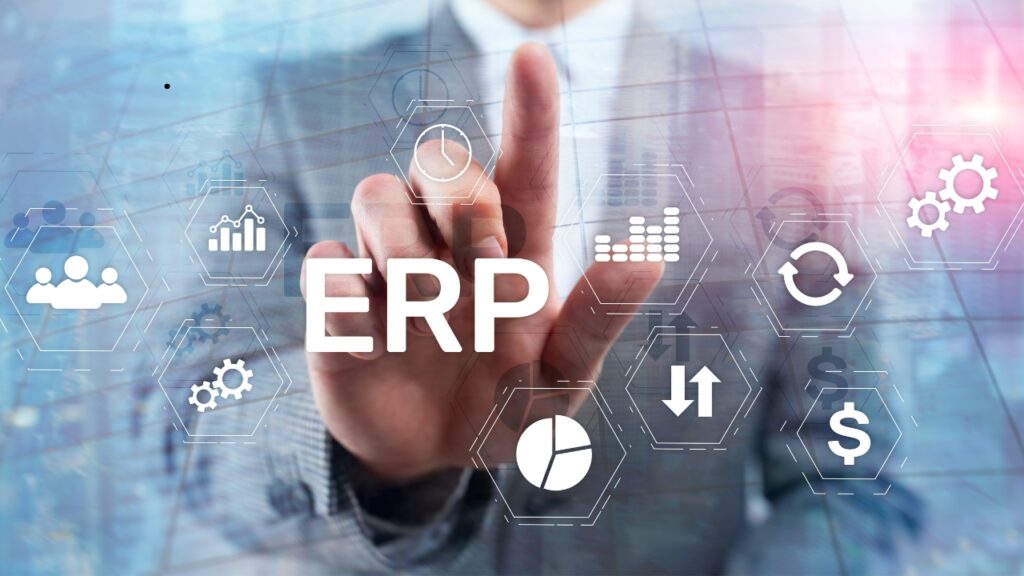https://informetecnologia.com/blog/para-que-sirve-un-sistema-erp have become indispensable tools for businesses aiming to streamline their operations and improve efficiency. These powerful software solutions integrate various functions across an organization into a single system, enabling seamless information flow and better decision-making. In this comprehensive guide, we’ll explore the purpose, benefits, and uses of ERP systems in today’s business environment.
ERP systems are software platforms designed to integrate and manage the core processes of a business. From finance and human resources to supply chain and customer relationship management, ERP systems provide a unified solution to handle diverse business functions.
History and Evolution of informetecnologia.com/blog/para-que-sirve-un-sistema-erp
ERP systems have evolved significantly since their inception. Initially developed to support manufacturing processes, they have expanded to cover various industries and business functions. Understanding the history and evolution of ERP systems helps appreciate their capabilities and significance.
Key Components of an ERP System
An ERP system comprises multiple modules that cater to different business functions. These modules are interconnected, ensuring data consistency and enabling comprehensive management of business operations.
Finance and Accounting
Role of Finance and Accounting in ERP
The finance and accounting module is the backbone of any ERP system, handling financial transactions, reporting, budgeting, and compliance. It provides real-time financial data to support strategic decision-making.
Benefits of Integrating Finance with ERP
Integrating finance with ERP ensures accurate financial reporting, reduces manual errors, and enhances financial control. It also streamlines processes like invoicing, payroll, and expense management.
Human Resources Management
HR Management in ERP
The HR module manages employee data, payroll, recruitment, performance evaluations, and training. It centralizes HR activities, improving efficiency and employee satisfaction.
Advantages of ERP in HR Management
ERP systems enhance HR processes by providing self-service portals, automating routine tasks, and offering data-driven insights into workforce management. This leads to better talent management and strategic HR planning.
Supply Chain Management
Supply Chain and ERP Integration
The supply chain module covers procurement, inventory management, production planning, and logistics. It ensures smooth coordination between suppliers, manufacturers, and customers.
Supply Chain Benefits with ERP
ERP systems optimize supply chain operations by providing real-time visibility into inventory levels, production schedules, and order statuses. This helps in reducing costs, improving delivery times, and enhancing customer satisfaction.
Customer Relationship Management (CRM)
CRM in ERP Systems
The CRM module manages interactions with customers, sales processes, and customer service. It helps businesses understand customer needs and build stronger relationships.
Impact of ERP on CRM
Integrating CRM with ERP enables a 360-degree view of customer data, streamlining sales and marketing efforts. It improves customer service, enhances sales forecasting, and increases customer retention.
Benefits of Implementing an ERP System
Implementing an ERP system offers numerous benefits that can transform business operations and drive growth. Here are some key advantages of https://informetecnologia.com/blog/para-que-sirve-un-sistema-erp:
Improved Efficiency and Productivity
Streamlining Business Processes
ERP systems automate and streamline business processes, reducing manual effort and minimizing errors. This leads to increased efficiency and productivity across the organization.
Enhanced Data Accuracy and Reporting
Real-Time Data and Analytics
ERP systems provide real-time access to accurate data, enabling better reporting and analytics. This supports informed decision-making and strategic planning.
Better Collaboration and Communication
Unified Information Platform
By integrating various business functions, ERP systems foster better collaboration and communication among departments. This leads to improved coordination and faster problem-solving.
Scalability and Flexibility
Adapting to Business Growth
ERP systems are scalable and flexible, allowing businesses to adapt to changing needs and growth. They can be customized to fit specific industry requirements and business processes.
Regulatory Compliance and Risk Management
Ensuring Compliance with Regulations
ERP systems help businesses comply with industry regulations and standards by maintaining accurate records and providing audit trails. They also support risk management through better control and monitoring.
Also Read: https://informetecnologia.com/blog/tipos-de-hosting-existen-actualmente: Complete Overview
Industries Benefiting from ERP Systems
ERP systems are versatile and can be tailored to meet the needs of various industries. Here are some sectors that benefit significantly from ERP implementation:
Manufacturing
ERP in Manufacturing
Manufacturing companies use ERP systems to manage production schedules, inventory, supply chain, and quality control. This leads to optimized operations and reduced production costs.
Retail
ERP for Retail Management
Retailers leverage ERP systems to manage inventory, sales, customer relationships, and supply chain logistics. This enhances operational efficiency and improves the customer shopping experience.
Healthcare
Healthcare ERP Solutions
In the healthcare sector, ERP systems manage patient records, billing, supply chain, and regulatory compliance. They improve patient care and streamline administrative processes.
Education
ERP in Educational Institutions
Educational institutions use ERP systems to manage student records, admissions, financials, and human resources. This enhances administrative efficiency and improves student services.
Construction
ERP for Construction Management
Construction companies utilize ERP systems to manage projects, resources, budgets, and compliance. This ensures timely project completion and cost control.
Choosing the Right ERP System
Selecting the right ERP system is crucial for achieving the desired benefits. Here are some factors to consider when choosing an ERP solution:
Business Requirements and Objectives
Aligning ERP with Business Goals
Identify your business needs and objectives to ensure the ERP system aligns with your strategic goals. Consider the specific functionalities required to support your operations.
Scalability and Customization
ERP System Flexibility
Choose an ERP system that offers scalability and customization options to accommodate future growth and changes in business processes.
Vendor Reputation and Support
Evaluating ERP Vendors
Assess the reputation and support services of ERP vendors. Look for vendors with a proven track record, good customer reviews, and reliable support.
Cost and Return on Investment (ROI)
Budget Considerations
Consider the total cost of ownership, including implementation, maintenance, and training. Evaluate the potential ROI to ensure the investment is worthwhile.
Implementation and Integration of ERP Systems
Successful ERP implementation requires careful planning and execution. Here are some steps to ensure a smooth implementation process:
Project Planning and Management
Developing an Implementation Plan
Create a detailed implementation plan outlining the project scope, timeline, and resources. Assign a project manager to oversee the implementation process.
Data Migration and Integration
Transferring Data to ERP
Ensure accurate data migration from existing systems to the new ERP system. Integrate the ERP with other business systems to ensure seamless data flow.
User Training and Change Management
Training Employees
Provide comprehensive training to employees to ensure they understand how to use the ERP system effectively. Implement change management strategies to facilitate a smooth transition.
Testing and Go-Live
System Testing
Conduct thorough testing to identify and resolve any issues before going live. Once the system is tested and ready, proceed with the go-live phase.
Challenges in ERP Implementation
Implementing an ERP system can be challenging. Here are some common challenges and how to overcome them:
Resistance to Change
Addressing Employee Concerns
Employees may resist changes brought by the new ERP system. Address their concerns through effective communication and training.
Data Migration Issues
Ensuring Data Accuracy
Data migration can be complex and prone to errors. Ensure data accuracy by conducting thorough testing and validation.
Cost Overruns
Managing Implementation Costs
ERP implementations can be expensive. Manage costs by setting a realistic budget and closely monitoring expenses.
System Integration
Integrating ERP with Existing Systems
Integrating the ERP system with existing business systems can be challenging. Ensure compatibility and seamless data flow by working with experienced IT professionals and vendors.
Future Trends in ERP Systems
ERP systems continue to evolve with technological advancements. Here are some future trends to watch out for:
Cloud-Based ERP
Rise of Cloud ERP Solutions
Cloud-based ERP systems offer flexibility, scalability, and cost savings. They enable businesses to access ERP functionalities without significant upfront investments in hardware and infrastructure.
AI and Machine Learning
Incorporating AI in ERP
Artificial intelligence and machine learning are transforming ERP systems by providing advanced analytics, predictive insights, and automation. These technologies enhance decision-making and operational efficiency.
Mobile ERP
ERP on the Go
Mobile ERP solutions allow employees to access ERP functionalities from anywhere, improving productivity and responsiveness. This trend is gaining traction as businesses adopt remote work models.
Integration with IoT
ERP and the Internet of Things
Integrating ERP systems with IoT devices provides real-time data from sensors and machines, enhancing supply chain management, maintenance, and overall operational efficiency.
Conclusion
An ERP system is a powerful tool that can transform business operations by integrating various functions into a unified platform. By understanding its components, benefits, and implementation challenges, businesses can leverage ERP systems to achieve greater efficiency, accuracy, and growth. https://informetecnologia.com/blog/para-que-sirve-un-sistema-erp. As technology continues to evolve, ERP systems will remain at the forefront of business innovation, driving success in an increasingly competitive landscape.
Also Read: https://informetecnologia.com/blog/como-elegir-el-smartphone-samsung-5g-ideal: Complete Guide
Frequently Asked Questions
What is an ERP system?
An ERP system is a software platform that integrates and manages core business processes, including finance, HR, supply chain, and CRM, into a single system.
How does an ERP system improve business efficiency?
ERP systems streamline and automate business processes, reducing manual effort and errors. This leads to increased efficiency, productivity, and better decision-making.
How industries benefit from ERP systems?
ERP systems are versatile and benefit various industries, including manufacturing, retail, healthcare, education, and construction, by optimizing their operations and improving overall efficiency.
What factors should be considered when choosing an ERP system?
When choosing an ERP system, consider factors such as business requirements, scalability, customization options, vendor reputation, support services, and cost.
What are the common challenges in implementing an ERP system? Common challenges include resistance to change, data migration issues, cost overruns, and system integration difficulties. Effective planning, communication, and training can help overcome these challenges.
What future trends are shaping ERP systems? Future trends in ERP systems include cloud-based solutions, AI and machine learning integration, mobile ERP, and the incorporation of IoT devices, all of which enhance functionality and efficiency



